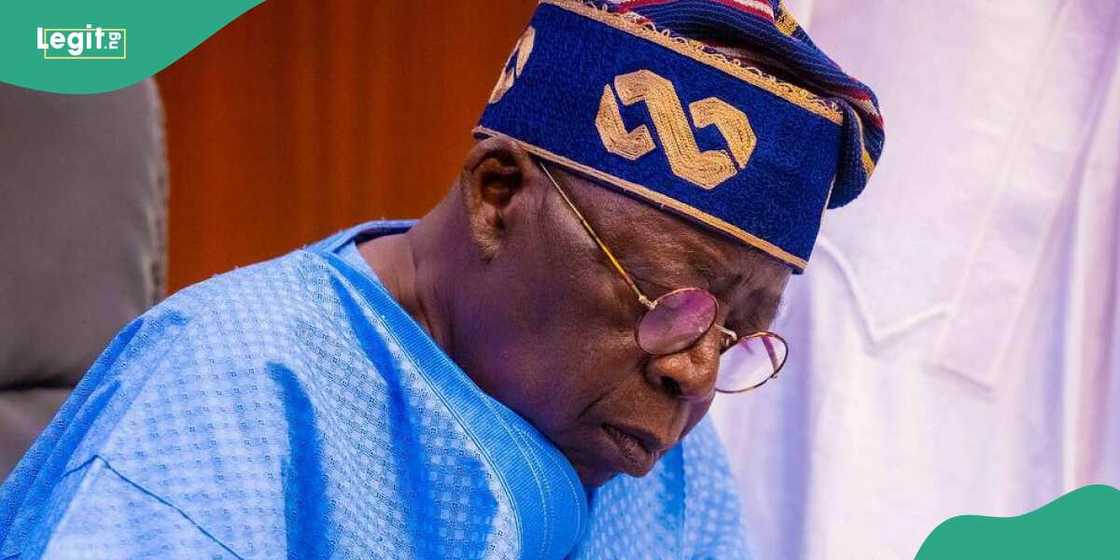15% VAT, 19 Other Critical Provisions That Make Up President Tinubu’s Tax Reform Bill
- The Nigeria Tax Bill has generated a lot of controversies among Nigerians, especially among the governors
- President Bola Tinubu sent three bills to the National Assembly on October 3, 2024, to boost Nigeria’s tax administration and revenue
- However, the bills contain some critical provisions that will impact individuals, businesses and companies
Legit.ng’s Pascal Oparada has reported on tech, energy, stocks, investment and the economy for over a decade.
The Nigeria Tax bill was among the three bills sent to the National Assembly by President Bola Tinubu on October 3, 2024.
The bills have generated enough controversies and protests among Nigerians, with some governors, especially from the North, and traditional leaders kicking against them.
Read also:Fg To Distribute Clean Cookstoves N10k Monthly Stipend To 80 Million Nigerians

20 key provisions of the tax bill
However, the bills contain some salient provisions that have divided Nigerians along regional lines.
15% VAT increase:
Value Added Tax (VAT) will increase from 7.5% to 10% by 2025, 12.5% from 2026 to 2029, and 15% from 2030 onwards.
However, certain items such as food, education, and healthcare will enjoy VAT waivers and exemptions.
Tax relief for low-income earners: Individuals earning N800,000 or below per annum will be exempt from Personal Income Tax.
The new bill aims to introduce a progressive Personal Income Tax system with reduced rates for low-income earners.
Taxes on lottery and gaming
Five per cent tax on lottery and gaming: Section 62 and Schedule 10 of the bill propose a five per cent excise duty on revenue from lottery and gaming trade or business.
Read also:Mercy Eke Abandons Lambo Drama Starts Masters In Uk University Done Playing Back To Reality
Five per cent Telecom Tax: The bill proposes a five per cent excise duty on telecom services, including post-paid and prepaid services controlled by the Nigerian Communications Commission (NCC).
Increase in CIT Exemption Ceiling: The ceiling for Companies Income Tax (CIT) exemptions will be increased from N25 million to N50 million in turnover.
This means companies earning below N50 million will be exempt from CIT in the new bill.
Streamlined Tax Processes: The Nigeria Tax Administration Bill hopes to create a common and user-friendly process for tax registration, filing, and dispute resolution.
A new name for FIRS
Join Revenue Board: According to the bill, a stronger Joint Revenue Board will be formed to improve coordination between federal and state governments.
A Tax Ombudsman will be introduced to moderate the process to ensure fairness and protect Nigerians from unfair taxation.
New Name for FIRS: The Federal Inland Revenue Service (FIRS) will be renamed the Nigeria Revenue Service (NRS).
Revenue Sharing Formula: An essential part of the new bill is the revenue-sharing formula, which will allocate 10% to the federal government, 55% to states, and 35% to local governments.
Electronic Invoicing: Taxpayers will be asked to use electronic invoicing systems to record and report taxable supplies accurately.
A VAT visualisation system will be introduced to streamline tax reporting and boost compliance.
Sanctions for Non-compliance: Defaulters of the VAT fiscalisaion system will pay a N200,000 fine plus 100% of the tax due and an annual interest rate of two per cent above the Central Bank of Nigeria (CBN) Monetary Policy Rate (MPR).
Exemptions for small business owners
Entrepreneurs and self-employed persons will enjoy tax relief regarding the Personal Income Tax (PIT).
Also, Companies Income Tax (CIT) will be reduced from 30% to 25.5% and 25% in subsequent years.
According to reports, small businesses will enjoy tax exemptions from withholding tax on business income.
Capital Gains Tax: Some capital gains will enjoy exemptions from taxes, including proceeds from the sale of residential property or land adjourning the residential property up to an acre.

Section 59 spells out a four per cent development levy on the accessible profits of firms, excluding small and non-resident companies.
The levy will decrease from four per cent in 2025 and 2026 to three per cent from 2027 to 2029 and two per cent from 2030.
States with the highest contribution to VAT pool
Meanwhile, information from the Federation Account Allocation Committee (FAAC) showed that over 20 Nigerian states increased their contribution to the value-added tax (VAT) pool in January this year, relative to December 2024.
Analysis shows that 26 states recorded a spike in VAT contributions within the period, indicating improved economic conditions.
VAT is one of the key revenue sources and is shared among the three tiers of government via FAAC.
However, the sharing formula has been disputed recently, with states disagreeing with the Nigerian government’s proposed formula.
Expert explains what Tax Reform bill seeks to achieve
Legit.ng earlier reported that President Bola Tinubu's Tax Reform Bill has become essential to his administration's economic vision.
It focuses on creating a unified and efficient tax system that promises to drive national growth.
The bill comprises four legislative components, targets multiple taxation, enhances tax processes, and aims to align Nigeria's tax system with global standards.
Proofreading by Kola Muhammed, copy editor at Legit.ng.


